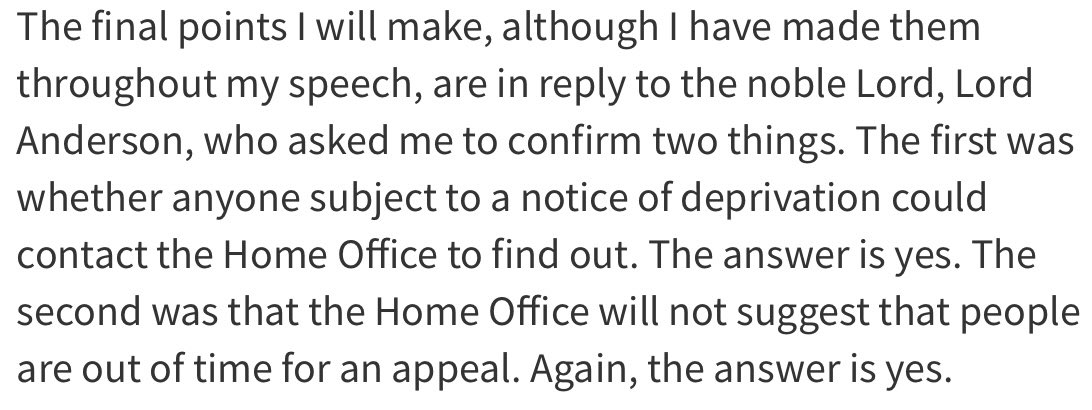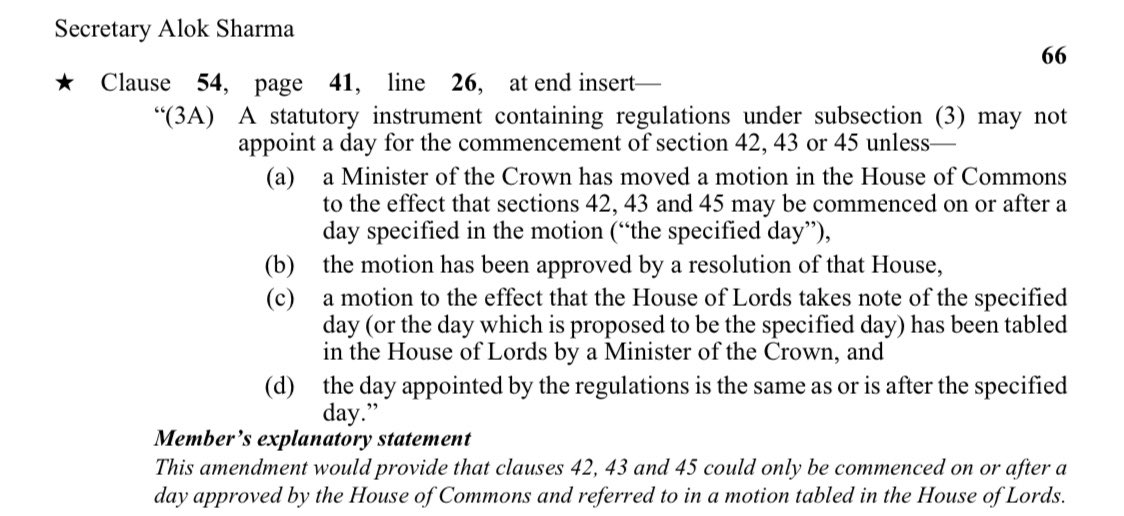
Good news: Govt has agreed to reinstate my extensive amendments to clause 9 of #NABB (citizenship deprivation): publications.parliament.uk/pa/bills/cbill…. Those changes take the sting out of it, as I tried to explain here theyworkforyou.com/lords/?id=2022…. /1
Some would have preferred to remove clause 9 altogether - but given the national security reasons advanced for it (and the flat rejection of numerous other @UKHouseofLords amendments), that was never going to be accepted by the Govt or the elected House. /2
Others would have liked to curtail the substantive citizenship deprivation power, perhaps by taking it back to its 2003 limits: I had some sympathy for this, but it was never voted on and is a much broader issue than the clause 9 issue of withholding notice. /3
In my opinion, a clause 9 deal that provides for judicial oversight, regular review of each case, extended appeal times and a right to be informed of your status on request is a good one in the circumstances. /4
It introduces significant safeguards which should give genuine reassurance to those who feared the uncontrolled and arbitrary exercise of the Secretary of State’s power to act without notice. /5
Extended appeal times and the right to be informed will also apply (by analogy) to those whose citizenship rights were removed under the pre-existing law. Those people also maintain their substantive rights of appeal, despite the retention in the Bill of clauses 9(5)-(7). /6 

To summarise, in an imperfect world I suspect we have pushed the Govt as far as is feasible. I am content that my amendments to clause 9 will feature in the Bill. Any further issues raised by others will be subject to trial by 🏓. /7 ends
The assurances in the Minister’s speech theyworkforyou.com/lords/?id=2022… that should have been attached to /6 are here: 

• • •
Missing some Tweet in this thread? You can try to
force a refresh






